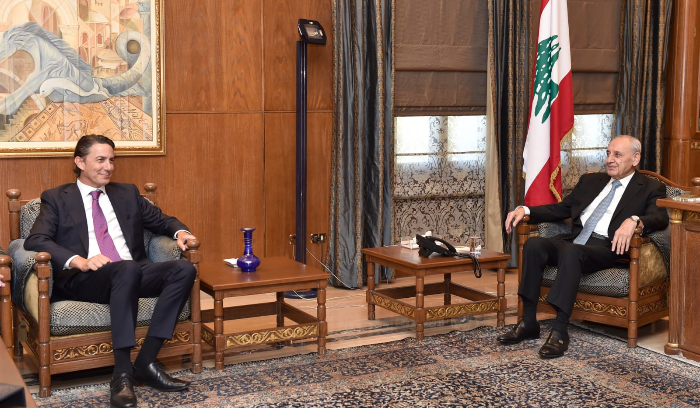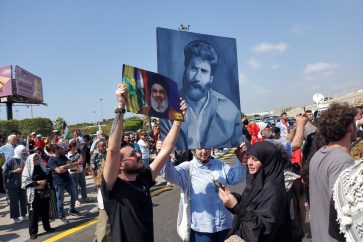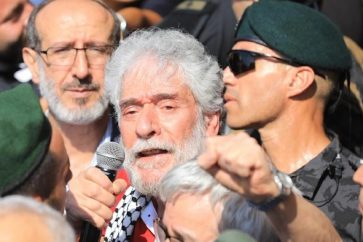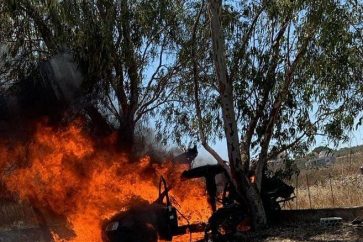Zoulfikar Daher
The first visit of US envoy Amos Hochstein to Beirut since the outbreak of Israel’s large-scale aggression against Lebanon came approximately three weeks after the Israeli enemy expanded its operations across southern Lebanon, the Bekaa, and even the southern suburbs of Beirut and the capital itself.

Prior to his visit, speculation arose about its true purpose: Was Hochstein bringing concrete solutions, or was he simply testing the waters and assessing the political landscape? Some questioned whether he was delivering Israeli demands aimed at pressuring Lebanon into submission. Did this move stem from American initiative alone, or was it coordinated with “Israel” as part of its efforts to impose terms? Alternatively, could it signal Israel’s realization that the conflict with the resistance is proving more difficult than anticipated, given the losses it has suffered along the Lebanese-Palestinian border?
There is a view that the Israeli enemy, recognizing the challenge posed by the resistance, is attempting to de-escalate while still hoping to extract some benefit from its tactical strikes. However, these strikes have done little to alter the situation. The resistance remains steadfast, its retaliation capabilities growing and reaching deeper into Israeli territory, while its capacity to manage the conflict remains strong.
Fearing that Israel’s “achievements” on the ground might slip away, the US administration appears to have dispatched Hochstein to reopen negotiations. The strategy follows a familiar pattern: escalate demands to the maximum in hopes of gaining concessions, all while threatening continued aggression.
Simultaneously, Israeli attacks intensified in various areas, particularly in the southern suburbs of Beirut (Dahiyeh). The timing of these escalations, paired with Hochstein’s visit, was no coincidence. “Israel” aimed to showcase its destructive capabilities, resorting to psychological warfare by targeting buildings associated with the Al-Qard Al-Hassan Association, although these were largely unoccupied. This was intended to send a message to the Lebanese leadership receiving the American envoy. The strikes continued the following night, extending to Al-Awzai and areas near Beirut’s governmental hospital. But the question remains: Can these aggressive moves impose Israel’s conditions on Lebanon?
Hochstein reportedly presented amendments to UN Resolution 1701, which included:
• Expanding the role of international forces and allowing them to operate without restrictions.
• Pushing the resistance several kilometers north of the Litani River, with some reports suggesting as far as the Owali River near Sidon.
• Assigning oversight of the resolution’s implementation to US, British, or German forces.
• Granting “Israel” unrestricted access to Lebanese airspace for supervision.

These terms essentially aim to hand “Israel” significant control, leaving Lebanon, its army, people, and resistance with little ability to defend national sovereignty. Some media and political voices have described this proposal as nothing less than a “surrender document.”
However, Parliament Speaker Nabih Berri reaffirmed Lebanon’s commitment to Resolution 1701, with no amendments. He emphasized that this is the final opportunity for the US to intervene diplomatically and halt the war. Berri made clear that Lebanon stands united on Resolution 1701, and that “Israel” must respect it. He anticipated that Hochstein would push Israel’s maximum demands but remained confident that nothing could be imposed on Lebanon. “Israel” has failed to achieve its objectives on the battlefield, and it will not succeed through diplomacy either.
Hochstein’s visit, it seems, was primarily a test of Lebanon’s resolve—an attempt to gauge whether the country, particularly the resistance, might offer concessions under pressure. But Lebanon’s leadership, backed by its steadfast resistance, will not yield. Neither the US, nor the Zionist entity, nor their allies can force Lebanon into submission.
Contrary to some perceptions, “Israel” is not in a position of strength. Those following the situation behind the scenes of Hochstein’s visit might believe “Israel” can impose its will, but the facts tell a different story. For over three weeks, it has faced setbacks along the border with Lebanon, failing to make significant gains or take control of any Lebanese towns. These developments underscore that the US-Israeli pressure campaign is shallow and ineffective against the united front of Lebanon, its resistance, and its people.

Ultimately, the outcome of this conflict will be decided on the battlefield, where the resistance, as emphasized by its leader, Sayyed Hasan Nasrallah (may he rest in peace), continues to hold the upper hand. The realities on the ground, both day and night, will shape the political and diplomatic consequences, not the other way around. The battlefield will determine the fate of this war, and indeed, the future of the entire region.
Source: Al-Manar English Website




